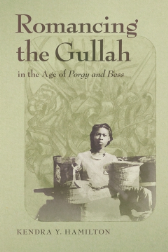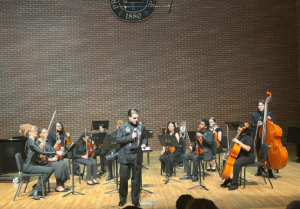Paragraph 175
April 8, 2011
Few people are aware that homosexuals were targeted during the Holocaust, so Spectrum (the LGBT-straight alliance on campus) held a presentation/discussion on the topic last Tuesday, April 5. The event was held in the HP amphitheatre at 7:00 PM. Spectrum served pizza, chips, cookies, and drinks to those who attended the program.
The program began with the presenter passing out a reference sheet that went over the history involved. When the Nazis took power over Germany in 1933, they quickly moved against gay organizations, gathering places, and publications. As part of a massive rewriting of the criminal code, Nazi jurists revised Paragraph 175 to emphasize the illegality of male homosexual relationships. Since convictions of homosexuals relied on the populace of Germany to denounce fellow citizens, Nazi propaganda labeled gays as “antisocial parasites” and “enemies of the state” to inflame already existing prejudices. Some 100,000 men were arrested for violating Paragraph 175. Half were convicted, some were institutionalized, and 5,000-15,000 were imprisoned in concentration camps.
The actual presentation covered very little of the history, instead focusing on a few of the victims from the Third Reich. The first was Friedrich-Paul von Groszheim who was castrated during his imprisonment. Henny Scherman, a Jewish lesbian, was gassed at the Bernberg killing facility. Robert Oelbermann founded a youth group that was shut down when young citizens were pressured to join the Hitler Youth was jailed and was eventually killed at the Dachau concentration camp. Finally, Richard Grune survived the Holocaust and created a portfolio of lithographs sharing the suffering during that era entitled Passion of the Twentieth Century.
A long discussion followed the presentation. While it originally made connections to the presentation, it branched out into a variety of directions. The discussion covered issues like implicit intolerance woven into the legislation of modern nations, why the persecution of gay men was more severe than lesbians, why the issue has gone mostly unnoticed in history, and how the event relates to Uganda’s Anti-Homosexuality bill that is still on its table.
After the discussion a few students remained to socialize and continue talking about the program. Food was eaten and given away. This was the last Spectrum program of the year, and it drew a fairly large crowd. It was nice to see the group cover an issue that has mostly remained unknown, and this reporter hopes that next year they will offer other programs (with food) that continue to challenge and interest students.





